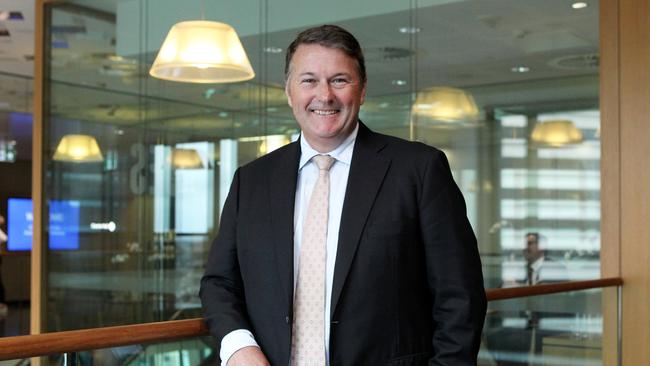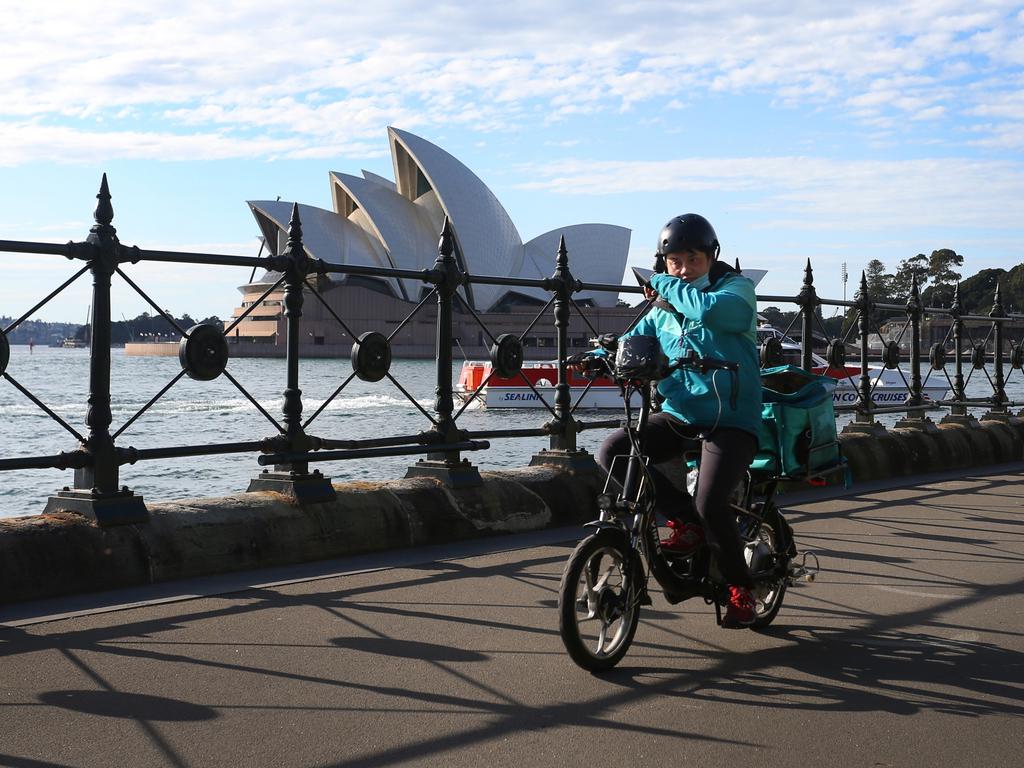Charter Hall profit hits $476.8m, tips return to offices as vaccination accelerates
The hybrid working model where office workers spend more time at home is not sustainable for most companies, says Charter Hall’s boss David Harrison.

Workers can’t stay at home forever according to Charter Hall boss David Harrison who controls one of the largest portfolios of office buildings in the country.
The company, which owns about $23bn worth of city and suburban office towers across the country, says that it expects workers to be back when the vaccination rates rise.
It joins the ranks of office owners who have called for a normalisation of conditions once it is safe to do so, with Charter Hall also saying the hybrid working model where office worker spend more time at home was not sustainable for most companies.
The shift back to work will have to overcome concerns about the highly transmissible Delta variant which has seen big offshore banks and financiers rework their return to office plans.
Last week, Dexus chief executive Darren Steinberg issued a call to governments to move beyond lockdowns and get cities back running and argued for city closures and border blocks to be eliminated once enough people are vaccinated.
Property companies are supporting the belief in offices held among top corporates, with software giant Atlassian developing a new $1.4bn headquarters in Sydney and Rio Tinto planning to open a new office tower in Brisbane this week.
Charter Hall delivered one of the results of the season with the fund manager saying it expects the economy to reopen and investors drove up 6.5 per cent to $18.37.
The company has built up a $53bn property funds empire and expanded on the back of pension funds and small investors backing its model of buying and developing long-leased properties.
Deal-making chief executive David Harrison flagged the company would undertake more transactions this year and expects that offices will rejoin industrial assets in the spotlight as activity resumes.
“The only way out to reopen the economy is an effective vaccination program,” he said. “The level of ambivalence in the population has dissipated. I think people are starting to understand that the only key to freedom is widespread vaccination.”
Mr Harrison said that once high vaccination rates are realised the economy will have to reopen.
“What these second wave of lockdowns have done is reinforced it’s just not possible to have people working from home indefinitely,” Mr Harrison said.
He rejects the idea that most companies can shift to hybrid models more permanently, and pointed to problems with workers being stuck at home.
“There’ll be some companies that can work effectively with some of their workforce from home, but the mental health issues and the productivity issues and homeschooling issues and all the other things that come with being locked down are rapidly changing the appetite of people to get back into the work environment when it’s safe to do so,” he said.
Charter Hall has also benefited from the rising tide of e-commerce and has $16bn of industrial and logistics assets. It has turned to development to keep up with demand and is well positioned.
The company is also benefiting from corporate Australia turning to sale and leaseback deals, with corporate activity also expected to drive deals.
“It’s not just the opportunity set of corporate assets on their balance sheet now. It’s the opportunity to partner with them in the growth of their business,” he said. “We can partner with them and be the property company and they can be the operating company.”
Charter Hall delivered a jump in profit to $476.8m, up from $345.9m in 2020, as the company’s funds performed and commercial property values lifted.
The company is the top listed exponent of the property funds model and kept growing during the pandemic as big investors backed its model of buying long-leased real estate.
Mr Harrison said the company generated record fund inflows, gross transactions and funds growth of $11.7bn. It had $5.3bn of gross equity inflows as its funds grew 29 per cent as the strategy of securing long leases with strong tenants was rolled out.
The company’s operating earnings hit $284.3m, an 11.9 per cent fall from $322.8m in 2020 and reflected operating earnings per security post-tax of 61c per security. Charter Hall gave earnings guidance for post-tax operating earnings per security of no less than 75c per security, ahead of expectations.
The company paid distributions of 37.9c per security and fiscal 2022 distribution per security guidance is for 6 per cent growth.
Macquarie analyst Stuart McLean said that earnings guidance was above consensus and he expects upgrades.
“Charter Hall has a strong track record of upgrading guidance through the year,” he said.
Analysts expect Charter Hall’s funds empire to hit $60bn in this financial year and it has more than $500m of balance sheet capacity and available liquidity of $6.7bn across the platform to acquire and develop real estate.








To join the conversation, please log in. Don't have an account? Register
Join the conversation, you are commenting as Logout